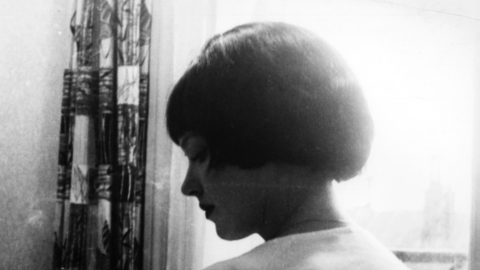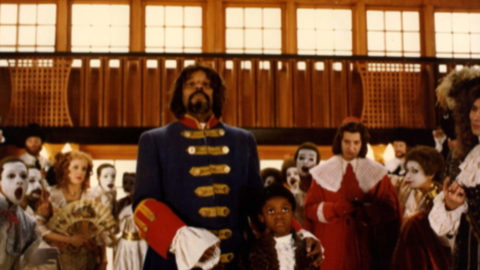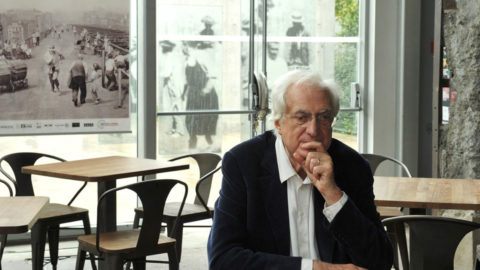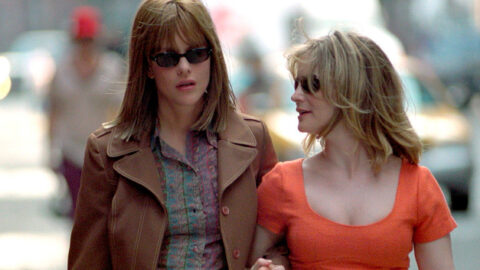Festivals: Lumière 2017
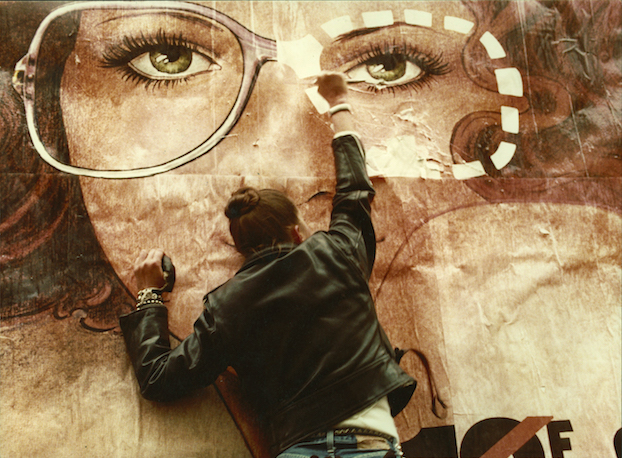
Le Pont du Nord
“Can cinephilia be recounted? It remains a mysterious, ritualistic, secret thing: like a personal diary or an intimate dialogue,” the film historian Antoine de Baecque ponders in his book La cinéphilie: Invention d’un Regard, Histoire d’une Culture (1944-1968). De Baecque’s question lingered with me as I navigated my way through the Lumière Film Festival in late October. Set in the medium’s native city of Lyon and captained by cinephiles Thierry Frémaux and Bertrand Tavernier, the Lumière Festival, which hosted its 9th edition in 2017, unfolded like an ethereal, kaleidoscopic journey through cinema joining the living and the departed, the modern and the classical, the marginal and the mainstream via an eclectic lineup of new releases, revivals, and restorations, including American westerns selected by Tavernier, from John Ford’s My Darling Clementine (1946) to King Vidor’s Man Without a Star (1955); Henri Decoin’s Monelle (1948); Jacques Rivette’s Le Pont du Nord (1981); John Cassavetes’s A Child Is Waiting (1963); and Barbara Loden’s Wanda (1970). As I burnt the candle at both ends attending the city’s various theaters in a hypnotic state of solitary immersion for three days, I disconnected from reality and rekindled my cinephilia in excellent company: Henri-Georges Clouzot, William Friedkin, Jean-Pierre Melville, and Wong Kar Wai, who were given retrospectives alongside Harold Lloyd, Diane Kurys, Jean-François Stévenin, and Michael Mann.
Yet it was not a filmmaker but a film critic who struck me most at the Lumière festival. Like many, I knew of Jean Douchet as a pioneering figure of cinephilic culture: a fervent and shrewd analytical voice that transformed criticism while his Cahiers du Cinéma comrades were transforming cinema. But it takes a movie to demystify a legend, and such was the effect of Restless Child, a sensitive and poetically vibrant portrait of the 88-year-old Douchet that screened in the festival’s documentary section. Taking its title from Douchet’s unproduced autobiographical screenplay, Restless Child is the long-nurtured labor of love of three spirited first-time filmmakers—Fabien Hagège, Guillaume Namur, and Vincent Haasser—who met the critic as teenagers in their hometown of Enghien-les-Bains (a suburb of Paris), where he still runs a film club, and followed him to the capital in 2009. Born out of the young men’s friendship and their desire to decipher the enigmatic Douchet, the self-reflexive documentary gracefully interweaves a historical account of Douchet’s career as a traveling critic and a film professor with an intimate meditation on the formative power of film. Against the octogenarian protagonist’s metaphysical reckoning with life, what plays out is a coming-of-age tale as much imbued with a sense of melancholy over leaving childhood as with one of wonder at the possibility of achieving lifelong transcendence through cinema.
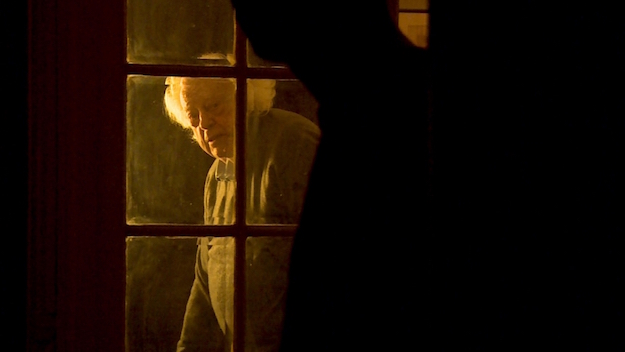
Restless Child
Savoring the moment’s pleasure has always been Douchet’s philosophy. In one whimsical scene at the Il Cinema Ritrovato festival in Italy, Douchet gets mad when the camera continues to roll through dinner: “I’m going to tell you something very important. If you don’t sacrifice a Mizoguchi film that’s shown only once for a good meal, you’ll never like Mizoguchi.” What the wise man movingly points out is the inextricable relationship between cinema and life: our existence feeds our spectatorial experience as much as the other way around. Douchet’s buoyant, larger-than-life personality permeates the film. Organized into a series of encounters with Douchet’s entourage of filmmakers, critics, and programmers, Restless Child is as much concerned with the critic’s professional legacy as with his profound impact on the cinephiles who have crossed his path. “We wanted to make a film that felt like everyone could make it; a carefree stroll toward people and their stories,” the filmmakers later told me over coffee in Paris. “We didn’t want to follow the conventional documentary formula. For us, the film’s mise en scène lies more in the small moments of reality we have triggered rather than perfect camera and light setups.” Captured with a combination of urgency and warmth, these moments of reality play a demystifying role: whether it’s Arnaud Desplechin, Xavier Beauvois, Barbet Schroeder, or Saïd Ben Saïd, the people who were influenced and guided by Douchet let their guard down at the mere mention of his name, returning to a state of innocence and purity before the camera as they pay tribute to the master who shaped their sensibilities and destinies.
If Restless Child was a heartfelt thank you letter, Anna Karina souviens-toi was the quintessential love poem. Affectionately directed and narrated by Karina’s husband Dennis Berry, the made-for-TV documentary charts the 77-year-old Copenhagen-born actress’s transformation from a fragile teenager fleeing a broken family and the ravages of war into an icon of French cinema and an embodiment of modern womanhood. Introducing the film together with his wife, Berry declared that “life with Anna resembles a movie. Recently we were on holiday and as we were biking, she suddenly started humming a Nino Rota tune.” This profound joie de vivre that generations of audiences have associated with Karina rests at the core of Berry’s exploration. Behind a globetrotting survey of the polyglot star’s collaborations with some of the past century’s most influential directors, lies an engaging portrait of a self-taught cinephile who abides by Douchet’s motto of constant change, endlessly reinventing herself as a woman and an artist.
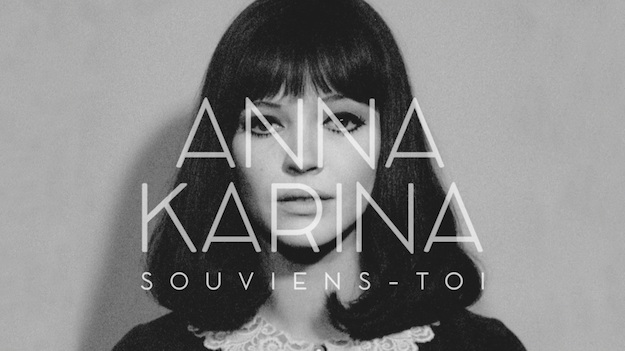
Anna Karina Souviens-Toi
But the greatest homage to cinema hailed from the cineaste Bertrand Tavernier. Divided into eight one-hour episodes that were shown in marathon form on the festival’s penultimate day, My Journey Through French Cinema, Tavernier’s extended TV version of his documentary released here this past year (and shown at NYFF in 2016), takes a deeper look at the director’s cinematic obsessions while delving into previously unexplored territory. Infused with a moving sense of comradeship, Tavernier’s painstakingly illustrated odyssey through 40 years of his country’s cinema (from roughly 1930 to 1970) is as much an introspective and analytical exercise as a poetic gesture of recognition toward the filmmakers—some obscure, others well-known—whose work has accompanied him since his early youth and haunts his own. From the impressionistic world of poète maudit Jean Grémillon to the meticulously staged, gestural cinemas of Robert Bresson and Jacques Tati to the subversive feminist period films of Jacqueline Audry and the political meta-narratives of Henri Calef, Tavernier’s intuitive cinematic rambles have a deeply felt, visceral force that bursts onto the screen. The filmmaker’s ardent devotion epitomizes cinephilia: that delicate balance of passion and lucidity that Douchet and his fellow cinephiles have made into a way of life.
Yonca Talu is a filmmaker living in Paris. She grew up in Istanbul and graduated from NYU Tisch.



